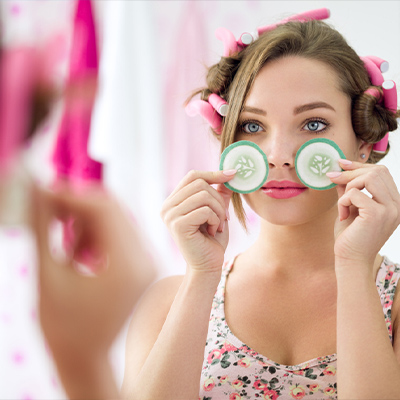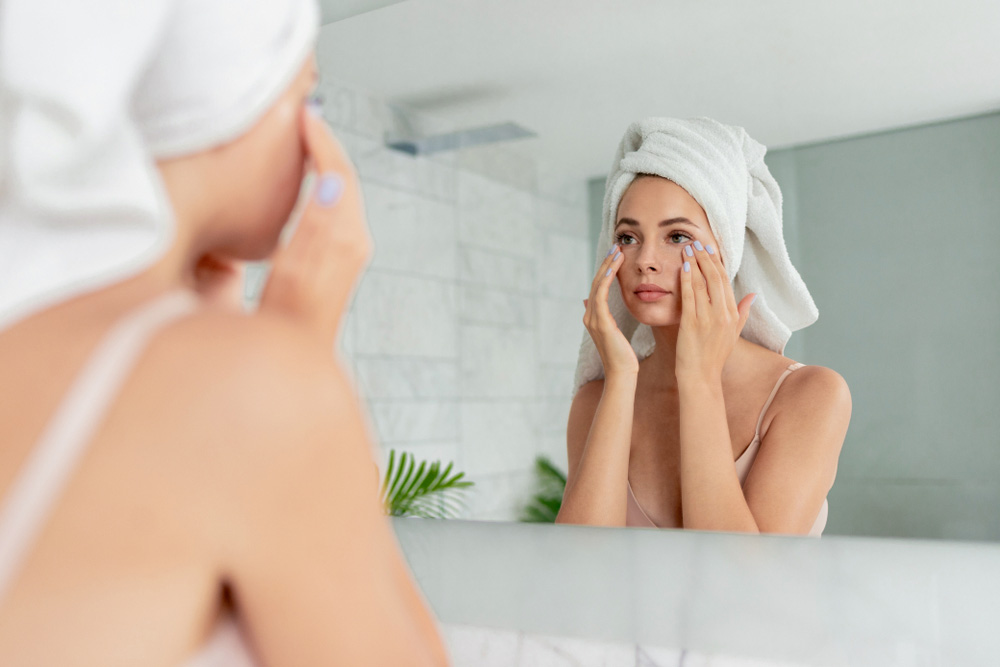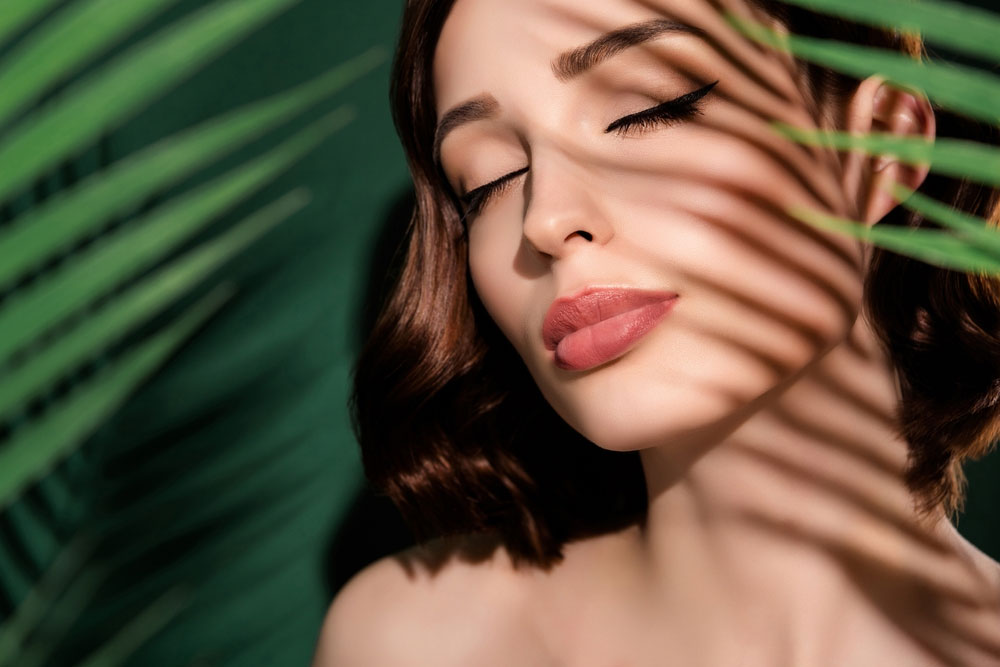Why Is Everyone Talking About Eye Creams Right Now

Abstract
We apply serums, moisturizers, and body moisturizers to some extent to the entire face. The eyes, which are also a highly fragile area, require particular attention because they are thin in nature and have a delicate condition.
Due to its thinness, our face's skin ages more quickly than other parts of our body, manifesting itself in fine wrinkles, dryness, and pigmentation. Your eyes are delicate, and if you don't take good care of them, these issues will probably be more obvious.
As a preventative strategy, you should start implementing eye care in your late 20s or around the time you become 25. "We want to use something before it becomes necessary, like years from now. As we age, the collagen production in our skin decreases, so we must try to promote it as much as possible by taking good care of it.

Eye Cream
A moisturizer designed especially for the eye area is a good eye cream. The skin around the eyes needs particular attention, despite the fact that some people choose to use regular face cream there.
Signs of aging frequently appear first in this sensitive tissue, which is why the skin around the eyes is thin and delicate. The two main qualities to look for in an eye cream are hydration and moisturization. But eye creams can do more for the skin than just hydrate it.
According to experts, the followings are the main advantages of using a good eye cream:
Skin is hydrated with eye cream.
It's vital to hydrate the area around your eyes because it has fewer oil glands and dries up more quickly.
The solution is comparatively easy. Daily application of moisturizing eye cream helps stop and treat dehydration.
Utilizing products designed specifically for the eye area can be advantageous because the skin around the eyes is particularly delicate, thin, and prone to irritation. The purpose of good eye cream is to moisturize this peaceful part of the skin.
A perfect eye cream will include the following:
According to her, humectants like glycerin and hyaluronic acid bind water to the skin.
Emollients, such as ceramides and fatty acids, enhance the skin's texture and look.
Beeswax and mineral oil are examples of occlusives, which create an inert barrier on the skin and physically prevent transepidermal water loss. Water evaporation via the skin occurs at this time.
Finding an eye cream with hyaluronic acid and ceramides should be easy because of its well-known benefits. Because of how well they retain moisture and replenish skin nutrients, these chemicals are common in eye creams and moisturizers.
The appearance of fine lines and wrinkles can be diminished with an eye cream.
As you age, your skin loses its elasticity and collagen, the protein that provides its structure. This results in fine lines and wrinkles. According to NourishMax eye cream, Eye cream aids in preventing fine lines and wrinkles in addition to preventative measures like avoiding the sun and smoking.
We blink so frequently during the day, which causes a lot of movement in this area and a lot of stress on the thin, sensitive skin.
We advise choosing an eye cream with peptides; an amino acid used to treat aging skin and to decrease fine lines and wrinkles. After entering the skin, they maintain cellular and tissue adhesion while also generating collagen and hyaluronic acid.
Retinol, a vitamin A derivative, boosts collagen formation and cell turnover, which delays aging and improves skin suppleness.
Antioxidant vitamin C aids in minimizing the effects of solar exposure.
Additionally, hydration can temporarily plump the skin and lessen the visibility of fine wrinkles. A 2017 study found that the skin began to improve 15 minutes after using a moisturizing moisturizer. For at least 56 days, there was a decline in the number of fine lines. Find an eye cream with ceramides, hyaluronic acid, or glycerin in this situation.
Eye Cream and Moisturizers: Are They Different?
According to NourishMax eye cream, the ingredients in eye creams are not all that different, although they typically come in smaller volumes and cost more per milliliter.
Every moisturizer has a combination of humectants, which bind water, emollients, which smooth the skin; and occlusives, which lock in moisture. The proportions of these three ingredients to one define the texture, how rich or light you perceive it to be, and which skin types it is best suited for.
There are various varieties of good eye creams, including eye serums, light eye gels, and rich eye creams, much as there are multiple types of face moisturizers (thick creams, light lotions, and serums). Regardless of whether they are termed serums or creams, you don't need to layer them as you would on your face (although you certainly could), and the one you choose depends entirely on your skin type and personal preferences. The skin surrounding your eyes generally needs more hydration than the rest of your face, but too rich textures might cause milia. To clear things up, there is more than enough motivation to use an eye cream if you love the ritual of using it. Skincare is self-care; it's all about doing things that make you happier and more relaxed.
When you get to my age and your eye area has developed many wrinkles from laughing your way through life, that is another reason to use a specific eye product in the mornings. Concealer and makeup have the propensity to settle into those lines, but an eye cream that forms a smooth layer can prevent that, much like a primer for the eye area.
However, if you have a specific problem that necessitates using certain actives with irritant potential, you should utilize a dedicated eye product.
Why? because the skin on the rest of your face differs from the area around your eyes.
Because of its thinner thickness and lack of sebaceous glands, the skin around your eyes is more prone to dryness and irritation. This is (as always) a generalization;. At the same time, some people can tolerate prescription retinoids up to the waterline or have extremely oily skin, including around the eyes; the majority will require lower concentrations to be able to employ their active ingredients in the eye area.
Speaking of the waterline, because there is so much movement there, products tend to travel there more efficiently, which is another reason I do not advise using high concentrations of potentially irritating chemicals there.

What Ingredients Should You Look for in an Eye Cream?
Retinoids are what you want to use, but again, not in prescription strength, but in an eye-adapted formulation if fine lines and wrinkles are your primary concern (and they are not caused by simple dryness).
Since there are numerous causes of dark circles, including heredity, many of them are more challenging to treat with creams. However, things like vitamin C can help to lessen their appearance if they are caused by hyperpigmentation, which is more common in people of color. If they are caused by blood showing through the skin, which is more common in those with fair skin, both retinoids, vitamin K, and (possibly) caffeine may also be helpful.





